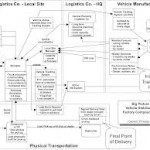 Whether you believe in Trait Theory, Skills Theory, some behavioural theory of leadership or whatever, the problem remains that if you don’t have a leadership process built then you won’t do a very good job of it.
Whether you believe in Trait Theory, Skills Theory, some behavioural theory of leadership or whatever, the problem remains that if you don’t have a leadership process built then you won’t do a very good job of it.
Please forgive the references to soccer but it’s much the same thing. You may know how to kick the ball but if you don’t play in a game, have a game plan, and execute on that plan, it’s a little hard to score a goal. In being a leader, I think you need a process around leadership so that you can set a vision, communicate, delegate, motivate, and coach effectively.
If you have a vision, you’ll need to show your followers how they fit into delivering on that vision and that is the function of work design and job descriptions.
It’s one thing to learn how to communicate but you need meetings and reports within which to communicate. A leadership process would have a regular series of team meetings, backed up with written reports.
If you’re going to delegate, you need to know what outcomes you want and what results you’re getting so that you know if things are going well. This is the function of metrics.
To motivate, you’ll need a compensation and rewards program.
Finally, to coach someone effectively, you’ll need regularly scheduled individual meetings.
Without a leadership process in place, a leader will not be able to be effective at individual leadership behaviours and will fail as a leader.
This is performance management, organizational development and whatever you want to call it. It is the nuts and bolts of turning strategy into daily action, into delivering results, into improving employee engagement and return on people.

Excellent round-up! It’s not the leader’s traits that distinguish effectiveness. It’s not the innate aptitudes of the (natural) leader. It’s the process!
If this isn’t the introductory chapter in the book you will be publishing, then I’m not buying the book!
Bravo on a very rewarding conclusion to this week’s series.
Thanks but I’m not done yet. There’s still one day to go.